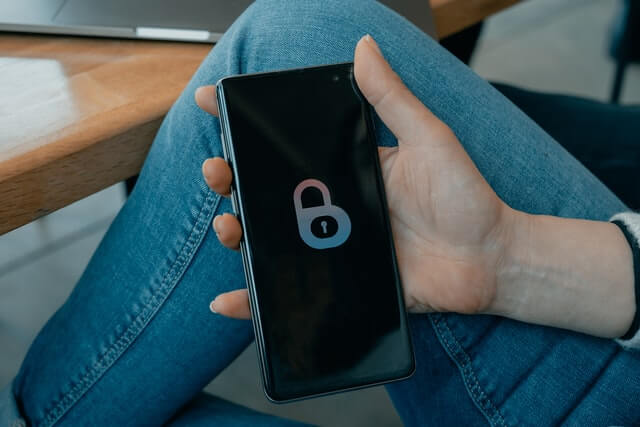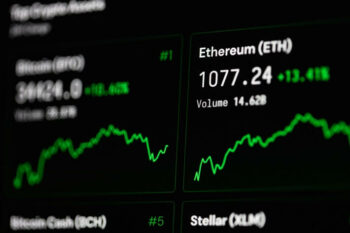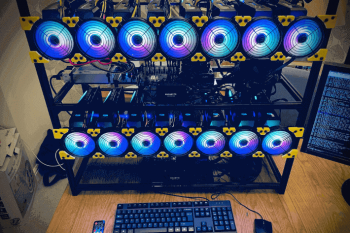What Is the Blockchain Wallet and Why Should You Get It?

Thanks to cryptocurrency, the 21st-century gold rush is a digital one. Crypto prospectors worldwide are trying to discover the next Bitcoin or Ethereum, invest a few dollars, only to buy a private island in a few years.
For a crypto investor, staying informed is crucial. This is especially true for new technologies where the rapid pace of development could cost you an island or two if you remain ignorant. Therefore, we thought it’s important to address a frequent question that we get at Bitcoinfy HQ: “What is the Blockchain Wallet?”
Blockchain and the Blockchain Wallet
If you know about Bitcoin, Ether, and other cryptocurrencies, chances are you’re familiar with blockchain technology and development. The term signifies the tech behind digital money and its innovative approach to creating transaction databases, where data is stored in a string of blocks.
Storing your crypto assets on a wallet and not a third-party platform like a cryptocurrency exchange is essential. As our team in charge of finding great Bitcoin poker websites would tell you, the odds of your funds staying secure on an exchange are odds they wouldn’t be willing to take.
Only with a private key for your crypto assets do you have complete control of them, and cryptocurrency wallets exist to help with that. The Blockchain Wallet for Bitcoin – or other cryptocurrencies – serves that purpose as well.
Blockchain, the Company
The company behind Blockchain.com started in 2011, founded by Nicolas Cary and Peter Smith. Located in Luxemburg, this enterprise also provides services like blockchain exploration for Bitcoin, Ether, Bitcoin Cash, market information, statistics, and data visualization.
Blockchain.com was one of the most-visited and popular websites for Bitcoin-related information in 2013. This success allowed it to acquire ZeroBlock LLC – the developer of the most used Bitcoin wallet app at the time.
The company then developed the Blockchain app to be used as a wallet by their users. In February 2014, Apple removed Blockchain Wallet from the App Store as part of its standard practice of banning Bitcoin-related applications. After backlash from the community, Apple reinstated the app in July 2014. Blockchain.com further expanded its services in 2019 by launching a cryptocurrency exchange.
In raw numbers, Blockchain.com has processed more than $800 billion in transactions by 2021. 33% of BTC network transactions go through Blockchain.com, and the company has 31 million verified users spread across more than 200 countries.
What Is the Blockchain Wallet Used For?
Like any other cryptocurrency wallet, the Blockchain Wallet can store your crypto funds. The main advantages of this particular wallet are its long-established reputation and ability to store multiple cryptocurrencies. Wallets are incredibly convenient to use in conjunction with Bitcoin betting websites, allowing for fast deposits and withdrawals.
Blockchain Wallet currently supports Bitcoin, Ether, Bitcoin Cash, Stellar, Tether, Polkadot, Algorand, Wrapped Gold, yearn.finance, USD Digital, and Aave. The application allows for the purchase and selling of cryptocurrencies, and swapping between the ones supported by Blockchain. Sending or receiving cryptocurrency transactions is similar to other apps: Do it by scanning the QR code or copying the wallet’s address.
You can download the Blockchain Wallet app from the App Store and Google Play. The setup takes just a few steps: Create an account with your email and password, and you will receive a verification email. The account is free, and you can access your wallet through the website or mobile app.
UI and Features
The app user interface is well designed, with a choice of handy features. The home screen shows you the total balance you have in each available cryptocurrency. At the top of the screen, you will often see a dismissable notification for news, tips, and tricks related to the app. Besides allowing you to buy crypto and access the digital exchange, your Blockchain account can be used to receive cryptocurrency airdrops. There’s also an activity log for user convenience.
Centralized Private Key Storage
The most prominent downside of the wallet is that your private key is stored with the company. This is the case with a significant number of software wallets, and more specifically, any that require you to create an account and register for exchange services. Veteran cryptocurrency users prefer not to store funds on such wallets in the long term; instead, they use them for day-to-day expenses. Even though our Blockchain Wallet review does find the company and software to be trustworthy, we would still recommend using a hardware wallet to save or store large sums of cryptocurrencies for extended periods.
The cryptocurrency community sees centralized companies as a loss risk for its assets. The Mt. Gox incident taught many to be careful of saving funds with a third party.
On that note, registering an account with your personal information does leave your privacy exposed. For that reason, many mobile wallets use rotating addresses to increase your privacy and don’t require your personal information, unlike Blockchain.com.
What Is the Blockchain Wallet Best-Use Case?
While the Blockchain Wallet is centralized, it provides advanced security for its users by other means. For one thing, your Blockchain password is not stored on the company’s servers – instead, if you forget it, the seed phrase for your password, generated along with the Bitcoin address, is used to restore. Users can enable two-step verification as an additional layer of protection when accessing their accounts.
Users with static IP addresses can either whitelist or blacklist specific IP addresses. Keep in mind, however, that setting up this kind of protection and then attempting to log in without a static IP will lock you out of your account.
Blockchain Wallets can also be set up so that accessing them from Tor network IP addresses is disabled. Users that don’t access their funds through Tor are strongly encouraged to enable this setting.
On top of all that, Blockchain.com uses PBKDF2 cryptographic hash functions to reduce the risk of brute-force password attacks.
Blockchain.com and its wallet are an established brand on the market with exciting options for its users. Our team at Bitcoinfy found it helpful in testing out new Bitcoin gambling establishments. The exchange function and multiple cryptocurrencies allow users who prefer Ethereum-powered gambling websites to use ETH for deposits.
FAQ
How does a Blockchain Wallet work?
Blockchain’s Bitcoin Wallet functions like any other cryptocurrency wallet, allowing users to send and receive BTC, ETH, BCH, and other currencies. The Blockchain Wallet supports additional features that Blockchain.com has available on its platform, including an exchange where users can swap cryptocurrencies or buy and sell them for fiat currency.
How do I fund my Blockchain Wallet?
To increase your funds on the Blockchain Wallet, you can purchase any supported currencies with a payment card. Otherwise, you can send crypto assets directly to your wallet address.
Is Blockchain a safe wallet?
The Blockchain Wallet’s security is designed to be top-notch. When you create a new account, you will have to back up your seed phrase, which serves as a 12-word backup system for your account.
Additional security measures are available for users with a static IP address. You can set up the account to only be accessible from a specific IP address or create a list of permitted IPs. If you don’t have a static IP address, this setting could lock you out of the account. Other security measures include restricting access from the Tor network and PBKDF2 (a security measure for reducing brute-force attacks).
What is the difference between the Blockchain and a Bitcoin wallet?
What is the Blockchain Wallet, and what does it have to do with the blockchain? In short, the company that developed the wallet shares the same name as the technology behind all cryptocurrencies.
The Blockchain Wallet is a mobile and web application you can use to store Bitcoin, Ether, and other cryptos. Blockchain.com, the company, developed this wallet and an online exchange platform for users to purchase or sell digital assets supported by their software.
On the other hand, a Bitcoin wallet is any wallet you can use to store Bitcoin, and the Blockchain Wallet is one of those.



